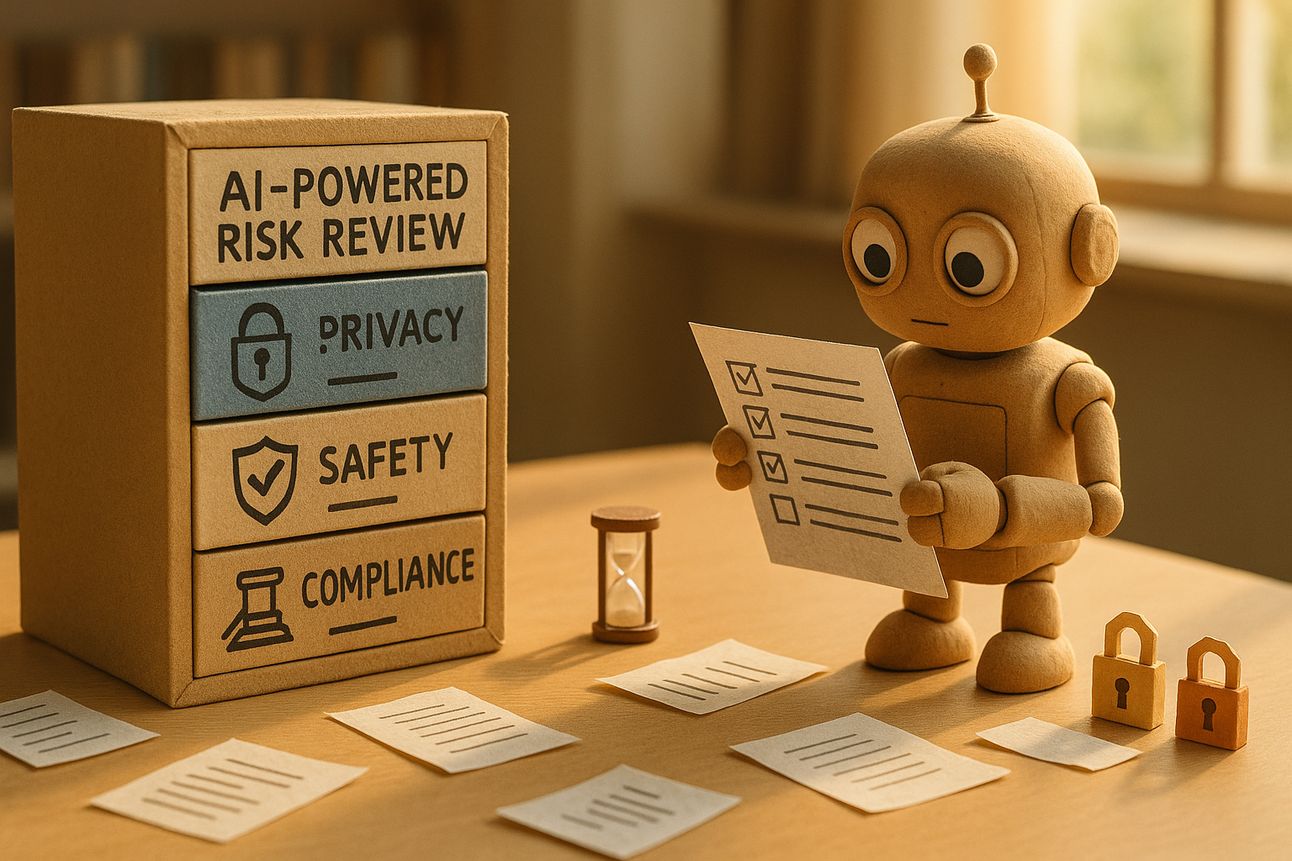- Today On AI
- Posts
- Google’s Gemini Now Auto-Summarizes Gmail Messages by Default
Google’s Gemini Now Auto-Summarizes Gmail Messages by Default
AND: Meta to Automate 90% of Product Risk Reviews Using AI

✨TodayOnAI’s Daily Drop
Google’s Gemini Now Auto-Summarizes Gmail Messages by Default
Meta to Automate 90% of Product Risk Reviews Using AI
Why Most CEOs Still Struggle to Capture AI’s Value
💬 Let’s Fix This Prompt
🧰 Today’s AI Toolbox Pick
| 📌 The TodayOnAI Brief |

🚀 TodayOnAI Insight: Google is rolling out automatic email summaries in Gmail via its Gemini AI assistant, removing the need to manually request them. The feature aims to streamline inbox triage—but its opt-out design and regional limitations reflect privacy and accuracy concerns.
🔍 Key Takeaways:
Gemini now auto-generates summaries for long emails, displayed as cards above the message body.
The feature launched globally on May 30, 2025, but applies only to English-language Gmail accounts.
Users in the EU, UK, Switzerland, and Japan must opt in due to stricter privacy regulations.
Manual summarization remains available through the “Summarize” button and Gemini side panel.
Summaries are dynamic, updating as replies arrive, and can be disabled at any time.
💡 Why This Stands Out: Google's shift from optional to automatic AI assistance marks a deeper integration of generative tools into everyday workflows. While time-saving, it raises ongoing questions about trust and transparency—especially as AI summarization remains prone to factual errors. Is the convenience worth the risk of misinformation in your inbox?
Meta

🚀 TodayOnAI Insight: Meta plans to automate up to 90% of its internal product risk assessments using AI, shifting key privacy and safety evaluations from human reviewers to machine-led systems. The move could accelerate product updates—but also heightens concerns around oversight and accountability.
🔍 Key Takeaways:
Meta is introducing an AI system to conduct privacy and risk reviews across Instagram, WhatsApp, and other apps.
Teams will submit a questionnaire and receive near-instant feedback, including AI-flagged risks and required compliance steps.
The shift stems from a 2012 FTC agreement mandating privacy reviews for all product changes.
A former Meta exec warned that automation increases the risk of harmful product impacts slipping through unnoticed.
Meta says it's spent $8B on privacy efforts and will continue using human oversight for complex or novel issues.
💡 Why This Stands Out: This marks a pivotal shift in how major tech firms manage regulatory compliance at scale. While AI promises speed and consistency, it also raises deeper questions: Can automation truly catch nuanced human harm? And how will regulators respond when risk review itself becomes a product of AI?
AI

🚀 TodayOnAI Insight: Despite widespread enthusiasm, most CEOs still struggle to realize meaningful returns from AI initiatives. BCG’s Romain de Laubier says 2025 will mark a turning point—when experimentation gives way to scaled execution, but only if leaders commit to transforming core functions, not just dabble.
🔍 Key Takeaways:
GenAI reignited corporate interest in AI, but only 25% of firms are seeing significant value today, per BCG’s AI Radar.
Asia-Pacific leads in AI upskilling, with Singapore and Japan training 44% and 38% of workforces respectively, yet lags in GenAI adoption.
Top-performing companies concentrate AI investments—using a 10-20-70 model (10% algorithms, 20% tech, 70% people/process).
Successful firms avoid scattershot pilots, instead targeting core functions for AI-driven transformation at scale.
Misconceptions around needing “perfect data” persist; de Laubier stresses that clear business objectives matter more than upfront data readiness.
💡 Why This Stands Out: The gap between AI’s promise and impact lies less in tech and more in leadership. Winning organizations treat AI as a business transformation challenge, not just a tech project. As 2025 nears, will companies shift from cautious pilots to decisive reinvention—or fall behind in the race to operationalize GenAI?
| 💬 Let’s Fix This Prompt |
✨ See how a simple prompt upgrade can unlock better AI output.
🔹 The Original Prompt
"Generate blog ideas for a marketing company."
At first glance, this prompt might seem okay. But it's too broad — and that limits the quality of AI-generated results. Let’s improve it using prompt engineering best practices.
✅ The Improved Prompt
Generate 10 blog post ideas for a digital marketing agency targeting small-to-mid-sized businesses. Focus on practical topics like lead generation, content strategy, SEO trends, social media growth, and marketing automation. Include a mix of how-to guides, case studies, and trend analysis.
💡 Why It's Better
Specifies target audience (small-to-mid-sized businesses)
Adds relevant subtopics to guide idea generation
Suggests diverse content formats (guides, case studies, trends)
Enhances SEO and audience relevance
🛠️ Learn how to adapt this prompt for SaaS, AI tools, dev teams & more →
Read the full PromptPilot breakdown
💡 Bonus Tool: Want to generate and master prompts instantly?
👉 Try PromptPilot by TodayOnAI (Free to use)
| 🧠 Smart Picks |
📰 More from the AI World
Google quietly released an app that lets you download and run AI models locally
Gemini will now automatically summarize your long emails unless you opt out
Google fixes bug that led AI Overviews to say it’s now 2024
DeepSeek’s distilled new R1 AI model can run on a single GPU
🧰 Today’s AI Toolbox Pick
⛓PromptChainer (Flow Builder Tool): Creates complex AI-driven flows using a visual flow builder.
💻DevKit (Developers Tool): The essential AI assistant for developers.
📊Venture Insights (Finance Tool): Creates investment reports and offers benchmark tools for your portfolio.